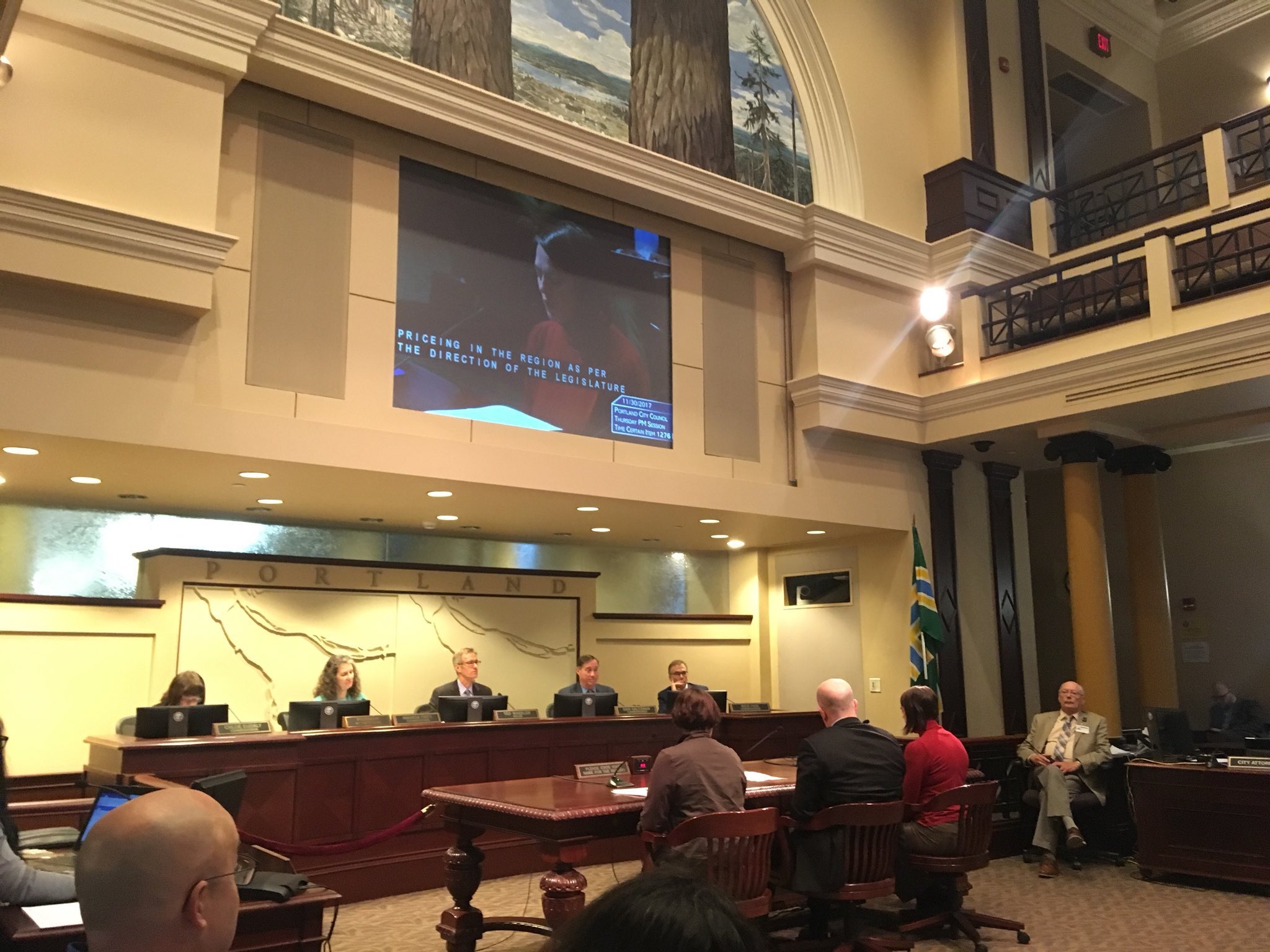Share this article! The Portland City council yesterday unanimously adopted a resolution directing the Portland Bureau of Transportation to work with ODOT to research the best ways to implement congestion pricing on I-5 and I-205. Portland congestion increased four times faster than its population between 2013 and 2015. If it continues unabated, PBOT director Leah Treat … Read more
The Portland City council yesterday unanimously adopted a resolution directing the Portland Bureau of Transportation to work with ODOT to research the best ways to implement congestion pricing on I-5 and I-205.
Portland congestion increased four times faster than its population between 2013 and 2015. If it continues unabated, PBOT director Leah Treat said, congestion could cost the city $844 million by 2025.
Mayor Ted Wheeler affirmed his support for relieving congestion through pricing instead of highway expansion. “I want to be very clear,” he said. “While I’m mayor, we’re not building any more highways.”
Related Story: Will Expanding I-5 Relieve Congestion? Freight Industry says yes
Congestion pricing means that drivers pay a fee to enter downtown or another congested area during peak travel times. The economic theory behind congestion pricing states that people only change their behavior if incentives change. In other words, if it gets more expensive to drive, people might choose transit, drive on alternate routes, or travel at different times.
“Lots of people want to be here, and are piling in,” said John Tapogna, president of ECONorthwest, a local economic consulting firm. “It’s not suprising that a firm of economists supports this resolution.”
Several cities have experimented with the policy. In London, congestion dropped by 30% in the program’s first year. Stockholm saw congestion drop, even as population continued to rise. Seattle and Vancouver have also discussed congestion pricing policies.
For congestion pricing to work, however, Portland must also invest heavily in public transit to provide equally attractive alternatives to driving. “Congestion pricing and transit options must go hand in hand,” Treat said.
Related Story: The Bus is Back: A special series exploring bus initiatives across Oregon
Port of Portland Director Curtis Robinhold, Multnomah County District 3 Commissioner Jessica Vega Pederson, and transit advocacy groups including the Street Trust and No More Freeway Expansions testified in support of the resolution. Vega Pederson said the cost of tolls for low-income drivers should be offset by improvements to transit and affordable housing.
Thanks to the Portland City Council for their leadership on congestion pricing. https://t.co/mNzbLM7Lhs
— Curtis Robinhold (@crobinhold) December 1, 2017
Though no one testified against congestion pricing yesterday, the freight industry has voiced its support for relieving congestion through highway improvements, including a $450 million expansion of I-5 near the Rose Quarter. The industry says that the project will improve safety and relieve congestion at a critical choke point.
Advocacy groups yesterday urged the city council to try congestion pricing first before moving forward with the I-5 expansion. Commissioner Dan Saltzman said he wants to try congestion pricing before “shovels break any ground.”




